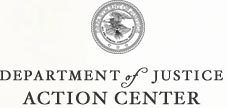


Thank you, Mary Lou, and welcome, all of you, to Washington D.C. Let me begin by bringing greetings from Attorney General Eric Holder. He wanted me to congratulate you on your selection for participation in this summit, and to be sure to express his appreciation to all of you for the work you’re doing to bring real, positive change to your tribal nations.
And what a diverse group of tribal nations they are. From the native village of Nulato in Alaska to Penobscot Indian Nation in Maine, from the Red Cliff Band of Lake Superior Chippewa, Wisconsin, down to the Mississippi Band of Choctaw Indians in the South, you have come from far and wide -- 53 teams from 22 states -- to share with us, and with each other, your dreams, your plans, your hopes for the future.
Now, as you may know, the Justice Department launched the Youth Summit initiative to promote long-term improvement in public safety in tribal nations. We did this because your tribal leaders asked us to develop more culturally appropriate prevention, early intervention, treatment, rehabilitation and reentry programs for tribal youth and families. The correct response—really, the only response—that seemed right to us was to ask you all—the young people themselves—how you perceive the problems and how you would like us to look for solutions. Your voices are critical.
That’s why the National Intertribal Youth Summit is truly a youth leadership conference. Here, as one of you noted on your application, “leadership means being able to take responsibility for your own actions and owning up to your mistakes. It's trying to be the best you can be and accomplish your goals.” Here you are able to meet other American Indian and Alaskan Native youth through special sessions on leadership development and issues critical to you—issues such as healthy relationships and lifestyles, education, substance and alcohol abuse, cultural preservation, community development and protecting the environment.
It’s obvious some of you are more than half-way there. In your applications, we read about your pride in the history and strength of your nations, and it is clear that you will carry on these proud traditions.
This week, you are here to listen and learn from each other as much as from the speakers and specialists in various fields who will engage you during this week. Because the summit is in Washington D.C. this year, we hope you also will also go home with a sense of the importance the decisions that are made here have on you and your tribal nation. All branches of government—from Congress, the legislative branch of government; to the Supreme Court and the rest of the judicial branch; and of course, the executive branch, consisting of the White House and the executive agencies, such as the Department of Justice—all of these branches make decisions that impact your lives.
From his first days in office, President Barack Obama has shown his commitment to strengthening tribal nations, and Attorney General Eric Holder has led by actively supporting our work on behalf of tribal nations. In June 2009, Attorney General Holder launched a Department-wide initiative to enhance public safety in Indian country. We have made significant progress since then to fulfill his vision of working with American Indian and Alaska Native tribes to build safe and healthy communities.
The Office of Justice Programs, which Mary Lou Leary heads and for which I have responsibility, is an arm of the DOJ that gives practical help, in the form of research and grants to federal, state, local, and tribal nations across the country to better carry out the Justice Department’s mission of ensuring equal justice under the law for all. Some of our most extensive work is done in partnership with tribes, and just last month, I had the opportunity to see the partnerships at work when I visited two tribal nations -- the Crow and Northern Cheyenne -- in Montana.
We’ve hired more people to prosecute crimes and help victims, and we’ve launched a national training program to give criminal justice officials the skills and the authority to respond more effectively to crime. We enacted the Tribal Law & Order Act; made it easier for tribes to apply for critical grant funds; created a new federal-tribal domestic violence prosecution task force, because sexual assault and violence against women is still too prevalent in Indian Country and neither you nor we will tolerate it; and we now meet with a Tribal Nations Leadership Council consisting of leaders from each of your regions -- in fact, I met with the Council just last week. In short, this Department of Justice and our sister federal agencies are dedicated to truly fulfilling our trust responsibilities to Indian nations, and to building partnerships with tribal governments so that together we can improve the lives of American Indian and Alaska Native people.
But as much progress has been made, there's still much more work to do. So we turn to you, the future of your tribes and of this Nation, to enlist you in helping us to write the next, great chapter of our shared history. This summit will engage you in interactive discussions with tribal elders, adult tribal leaders and mentors, federal government representatives, youth advocates, and field experts on cultural values. You will travel to the White House and Capitol Hill, where you will meet Native American leaders and members of the House and Senate, and you'll experience Washington's inspirational monuments and memorials.
And at the same time you are learning about how the laws and institutions of the United States work for you and affect your lives, you will also learn from one another about your special place in this land, as vital members of your tribes. You will be reminded that as unique as your own tribe is, it shares so much with many others -- tribes which may be as far apart geographically as Alaska and Maine, but are as close as the shared experience that binds together all First Americans.
My wish for all of you is that the experience of this week will transform your present and give momentum to your future as proud members of your tribe and proud Americans, working to bring about the best for you as an individual and for your tribal nation. Remember that while you are here to learn new leadership skills, your presence alone says that you are already leaders. And I hope you will then carry what you learn back to your tribe and share it with your friends and families. Your voices matter—both at home and here in Washington. You have a lot to say, and all of us want to hear from you.




